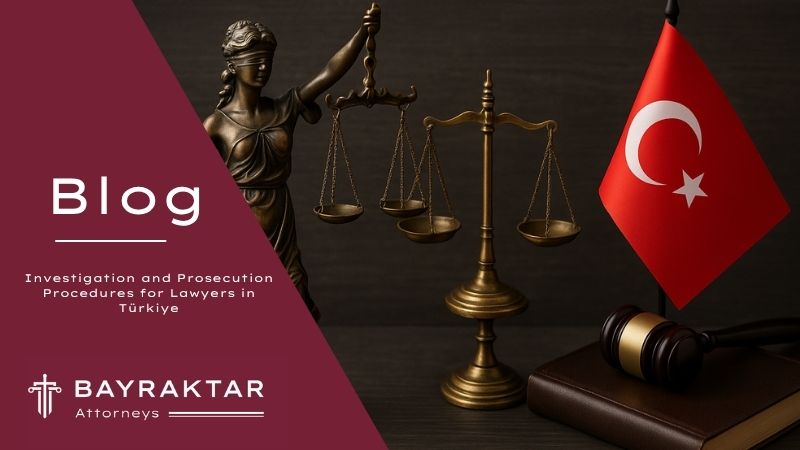![["a-photograph-features-legal-and-financial-symbols-related-to-turkish-down-payment"]](https://admin.bayraktarattys.com/api/admin/images/images/projects/7a3cdfe3-c8ab-482c-8807-015f381c8df6_a-photograph-features-legal-and-financial-symbols-related-to-turkish-down-payment.jpg)
If you are a foreigner buying property in Türkiye, paying a deposit for cosmetic surgery, or making an advance payment for a car or yacht, you will likely come across the term "kapora."
This is the Turkish word for a down payment or deposit. However, under Turkish law, "kapora" is not a legally defined term. Instead, the Turkish Code of Obligations breaks down such payments into two categories: bağlanma parası, which means binding money, and cayma parası, which means cancellation money.
Knowing the difference between these two is important to protect your legal rights.
If you are about to make a down payment or face a dispute related to a deposit you’ve paid, we strongly recommend consulting with our law firm, Bayraktar Attorneys, before proceeding.
What Is a Down Payment (“Kapora”) Under Turkish Law?
The concept commonly referred to as "kapora" is not legally defined under Turkish law. However, the Turkish Code of Obligations (No. 6098) addresses two similar concepts:
Article 177: Binding Money (Bağlanma Parası)
Article 178: Cancellation Money (Cayma Parası)
Let’s explore both concepts in detail.
What Is “Bağlanma Parası” (Binding Money)?
According to Article 177:
“If, when a contract is made, one party gives a sum of money, it is presumed to be evidence of the contract, not cancellation money.”
This means that unless otherwise agreed, the payment made during contract formation is considered proof that the contract was concluded. It is typically deducted from the total price.
If the buyer withdraws from the contract, the binding money is refundable.
If the seller suffers damages due to the buyer’s withdrawal, they may refuse to returnthe deposit or claim additional compensation.
Important: The party who claims the payment was "cancellation money" must prove it. Likewise, the person who claims to have paid it must provide written evidence (such as a receipt or signed agreement).
What Is “Cayma Parası” (Cancellation Money)?
According to Article 178 of the Turkish Code of Obligations:
“If cancellation money is agreed upon, either party may withdraw from the contract; the party who cancels forfeits the amount paid, and the party who received the payment must return double the amount if they cancel.”
Thus:
If the buyer cancels, they lose the deposit.
If the seller cancels, they must return double the deposit.
This clause must be explicitly written into the contract and proven. Otherwise, Turkish courts will assume it was a “bağlanma parası.”
Real-Life Case: Refund of Deposit in a Real Estate Deal
In a case decided by the Turkish Court of Cassation (Yargıtay):
A buyer paid 2,000 TL as a deposit and 18,000 TL as down payment for an apartment under a handwritten agreement. When the deal fell through, the seller refused to refund the deposit.
The court ruled:
“As per Article 177, such payments are presumed to be binding money unless proven otherwise. The seller failed to prove it was cancellation money, and since the deal did not go through, the deposit must be refunded.”
Decision:
YARGITAY 13th Civil Chamber
2016/31227 E. – 2017/6741 K.
Date: 31.05.2017
Application in Real Life: Foreign Buyers, Aesthetic Procedures, Car Purchases
Kapora payments are very common in:
Real estate transactionsinvolving foreigners
Private hospitals or clinicsfor aesthetic surgeries
Second-hand car or boat purchases
Luxury servicesor event bookings
In each case, legal protection of the deposit depends on:
Whether a written contract exists
How the payment is categorized (binding vs cancellation)
Whether the payment was made via provable means (e.g. bank transfer)
What Happens If There Is No Written Agreement?
If there is no written agreement or receipt:
The buyer may struggle to provethey paid a deposit.
The seller can avoid refunding, claiming no agreement existed.
Courts generally favor the written document. Hence, legal proof is vital.
Legal Requirements in Real Estate Transactions
Under Turkish law, real estate sales contracts must be made at a notary or land registry office. If a deposit is paid informally or outside of these channels:
The contract may be invalid.
The deposit cannot be treated as cancellation money.
The buyer may still reclaim the moneyunder unjust enrichment principles.
Can the Buyer Reclaim the Deposit?
Yes, if the deposit qualifies as bağlanma parası, the buyer can generally reclaim it. But if it was agreed as cayma parası, they cannot — unless the seller withdraws from the agreement, in which case double repayment is required.
Refund Period: The buyer typically has 10 years to file a civil lawsuit for return of the deposit under the statute of limitations.
Conclusion: Always Get Legal Advice Before Paying a Deposit
Paying a deposit before securing a proper legal agreement exposes you to serious financial risks in Türkiye. Whether you are:
Buying a house,
Booking an aesthetic procedure,
Purchasing a vehicle, or
Signing a commercial contract…
Contact Bayraktar Attorneys to ensure your down payment is properly documented and protected. We also assist in disputes where deposits are wrongfully withheld or contested.




![["A gavel, separated wedding rings, and Turkish legal documents with a Turkish flag, symbolizing the legal consequences of divorce in Türkiye"]](https://admin.bayraktarattys.com/api/admin/images/images/projects/765770dc-c7ce-4ea1-ae8b-99b96a482da5_divorce-in-turkey-legal-documents.jpg)
![["A Turkish passport, a regulation law book, a house-shaped keychain with keys, and the official Turkish Citizenship Regulation Guide PDF placed on a wooden desk. Ask ChatGPT"]](https://admin.bayraktarattys.com/api/admin/images/images/projects/93a7384a-474a-4d6e-8c36-7899a6113b78_turkish-citizenship-guide-passport-law.jpg)
![["A professional mediation session in Türkiye with a mediator guiding two business parties across a table, with official documents and stamps present."]](https://admin.bayraktarattys.com/api/admin/images/images/projects/9097ecff-efb0-406f-af7a-464b6a72b3e2_mandatory-mediation-commercial-disputes-turkiye.jpg)
